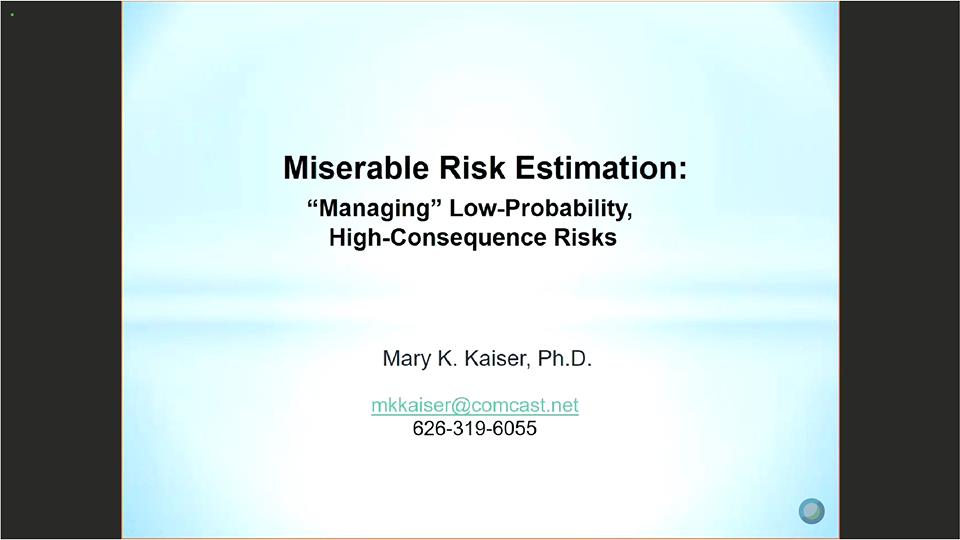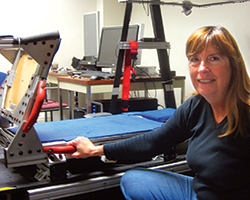Suggestions
Mary Kaiser
Research Psychologist at NASA
Mary Kaiser is a distinguished research psychologist who dedicated over 30 years of her career to NASA's Ames Research Center.12 Her work primarily focused on human systems integration and applied perceptual psychology in the context of space exploration.
Career at NASA
Dr. Kaiser worked in the Human Systems Integration Division at NASA Ames Research Center.1 Her position prior to retirement was Project Scientist for NASA's Space Human Factors Engineering Project.1 Throughout her career, she applied psychological science to solve practical problems in space exploration, combining behavioral science with engineering expertise.2
Research and Contributions
Dr. Kaiser's research involved:
- Studying how to improve astronauts' experiences and capabilities in space2
- Addressing operational challenges, such as improving astronauts' ability to read displays during spacecraft launches2
- Developing foundational knowledge in human psychology and performance for current and future space systems2
One of her notable contributions was working on a solution to help astronauts read control panels during the launch of the Constellation spacecraft, when vibrations made it difficult to view critical information.2
Education and Achievements
- Ph.D. in Psychology from the University of Virginia1
- Postdoctoral fellowship at the University of Michigan in applied experimental psychology1
- Author of over 60 articles and chapters on perceptual psychology and human factors13
- Fellow of the Association for Psychological Science1
- Associate editor of the Journal of Experimental Psychology: Human Perception and Performance for over a decade1
- Holds two patents for innovative display technologies13
Post-NASA Career
After retiring from NASA, Dr. Kaiser continued to contribute to the field as a consultant to the Human Factors Technical Discipline Team of the NASA Engineering & Safety Center.3
Dr. Mary Kaiser's career exemplifies the application of psychological science to solve complex problems in space exploration, making significant contributions to NASA's missions and the field of human factors in aerospace.

